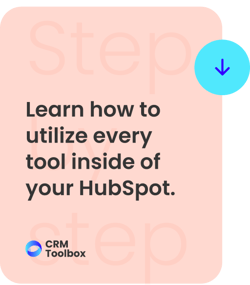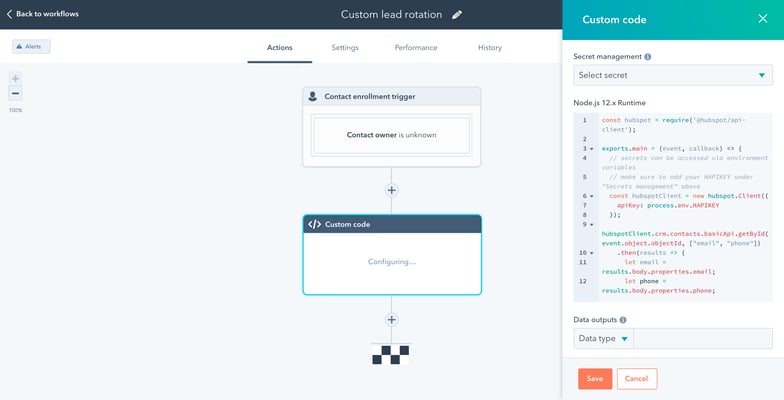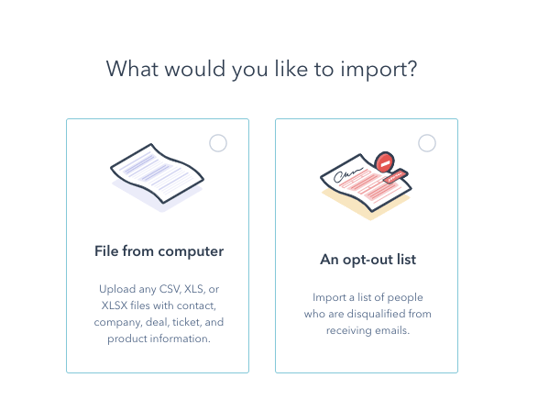Subscribe to ur Blog

How to choose the right HubSpot integration partner
Izzy
Choosing an ally to help you grow your business, integrate your tech stack can be a tough decision. In a world that is moving so fast and with such a valuable resource at stake (your customer data), you want your partner to be the right one for you from minute 0.
I'm not going to lie. I don't believe that there is a perfect partner that fits all needs. To say that the same HubSpot partner is ideal to deal with the needs of any client is a fallacy, just like saying that a restaurant, no matter how many Michelin stars it has, is the perfect place for all diners.
Like any business operating in 2022, you can't do it without the use of the right technology. However, never before has the technology ecosystem been as broad and rapidly evolving as it is today. Every day new players emerge with value propositions that seem unique and often your sales, marketing, and customer service teams can't keep pace with these new technologies because no one is helping implement them correctly, or simply the solutions of each department are completely disconnected.
Gone are the days when the same marketing or sales process worked for years without the need for change. The corporate graveyard is full of companies that believed that their sales would serve for eternity and never updated their processes or the way they handled customer data. Today, having a CRM is not enough if you are not exploiting it to the fullest, and the data your company handles is useless if it is not really connected between systems and areas (if marketing sees one thing and sales sees another completely different picture, the process is completely corrupted).
Why do I need a partner?
A partner comes in to help integrate your company, from technology to processes to the data structure. Customers demand speed and an extraordinary experience; you can't waste time learning how to integrate your technology on your own. In this hyper-specialized world, it's better to let an expert help you than to lose focus on doing it on your own. If the disconnect between your data is giving your customers a bad experience, someone else will give them a better one and they are likely to abandon you.
The sooner you can complete these integrations, the faster you can improve your customers' experience, the more efficient your operation can be, and the better your company's revenue will be. It is well said that "give the bread to the baker" and in the case of integrations it couldn't be more true. The systems you use play an invaluable and delicate role: the data of your customers and the business you have with them. That's why you shouldn't let just anyone get their hands on it. The speed and ease with which systems are integrated can be the difference between a successful business and one that is forgotten. You don’t want to be in the integration business, you want to focus on your area of expertise.
What does successful HubSpot integration provide you?
- Alignment of teams
- Alignment of data
- Alignment of goals
- Alignment of processes
- Better customer experience
- Reduced Churn
- Clean data and data structure
- Increased sales
Points to consider
Not all integrations are the same and, before choosing a HubSpot partner, you should know that there are different types of integrations, which require more or less experience depending on the case. Here are some types of integrations:
Plug and play or Out of the Box
These are the simplest, they are systems that can practically be integrated with a few clicks and without the need for code or more extensive development. Many of these are even in the marketplace of the system you want to integrate.
Custom integrations
Here you can make use of some templates and preset configurations, but it is not something you can do automatically and without any expert supporting you. From choosing and segmenting your customer objects in a CRM to adding custom fields.
Other points to consider
Flexibility
Information between systems must flow smoothly and must be able to move bidirectionally. When it only moves in one direction, the rest of the systems are blind to some data and this can generate discrepancies in the information.
Security
As we have already mentioned, these integrations work with your most valuable resource, your customers' data, so you must guarantee that they will never be compromised or at risk.
What to look for in a partner?
Be a good fit
It seems obvious, but it is important to remember that this is one of the key success factors for any relationship (commercial, personal, interest-based, etc). If both parties are not the right fit to work with each other, the results will never be good. As a company, we have had to say no to some potential clients because we know they are not who we want to work with and we know that accepting them will be more counterproductive than beneficial for both of us. Knowing when to say yes and when to say no is the basis from which you should start.
Have clear expectations
Before you start looking for a partner, you need to know what you are looking for from them. That is why before starting your search you should clarify internally what the scope of the project is, who will participate in it, what you expect to achieve when it should be finished, and how you will measure its success. If you are not clear about this, you may run the risk of getting lost among the infinity of partners that exist and end up with one that is not ideal for your company.
Specialization
When you are talking about a HubSpot partner agency, often the most striking thing can be that they are multidisciplinary, because these more robust teams that know different platforms seem the most complete. However, when you are thinking about integration, you should consider that the better they know the central platform to be integrated (CRM, for example), the better the outcome. Yes, that an agency has clients in different platforms seems interesting, but what you really want is someone who knows the HubSpot CRM you want to integrate from head to toe; the more specialized they are, the better results you can expect from them because they will know exactly how to give you what you are looking for.
Tangible experience
Here you should look for a partner that has worked with companies similar to yours (not necessarily your competitors, but that have common use cases). This will give you the certainty that they can achieve the objectives of your project and that they have already done integrations similar to yours. If they have already worked with companies in the same industry as yours, they will have a broader knowledge of your business requirements and will be able to offer a more complete vision at the time of integration. If possible, ask for references from previous clients they have worked with and success stories they can share with you.
HubSpot Certifications
In addition to the previous point, a good way to be sure that the partner you chose knows exactly what they do, is to check the certifications and recognitions they have from HubSpot. One of the great things about HubSpot is that it is concerned about offering added value to its users, so it constantly trains and coaches the agencies it works with, as well as rewarding the best exponents. This will also give you an idea of how updated they are or if they will offer you solutions that are one or two years behind. HubSpot as a tool is constantly evolving so you want to make sure the partner is up to date. Here you can find a list of all the HubSpot partners.
Who will lead the project
This is an important point on both fronts, your company's and the agency's counterpart. First of all, it is crucial that your team has a project leader who is responsible for the coordination between the different internal areas and the agency in order to successfully manage requirements and make the integration a success. On the other hand, it is important that you know well who will lead the project on the agency's side because many times the sales team is great at making the pitch, but the account manager does not click so well with your company or does not give the right follow-up. Ask to meet the entire team before making a decision.
Communication between both parties will be crucial, so this will be one of the points you should pay more attention to.
Clear SLAs
One of the main reasons for frustration and errors in integration projects is precisely the management of expectations. If the service level agreements are not clear from the beginning (delivery times, project schedule, number of customizable objects, response time, deliverables to be provided at the end of the project, etc), it can lead to misunderstandings between the two. It is important to be careful with companies/agencies that have ambiguous SLAs as these can work against you down the road; an ideal partner is one that is transparent from the first moment until the final delivery.
Training and implementation
It's one thing to get your data flowing seamlessly, and another thing to actually use that data. That's why the partner you choose should also be able to offer post-integration data training and help with implementation. One of the biggest headaches is having an excellent tool and finding out that not everyone in your team is using it as they should.
Don't rely on cost
It is well said that "cheap is expensive" and this could not be more true in the case of integration. Remember that you are altering your customer's database and that is a resource that you should never put at risk. Choosing a partner that offers "the best price" is a path that you do not want to go down, this does not mean that you should blindly trust the highest quote you receive; just remember that your ideal partner must comply with the points previously discussed and that has a cost that you must be willing to pay.
That s/he listens to you
The most important thing of all is that your partner understands perfectly what your business needs are, the main pains, and the expectations you have. Before choosing a partner, it is important that they take the time to learn more about your company and give you the information you need.
If you no longer want to waste time, business, and money because of systems that don't talk to each other and you are looking for a partner to help you get the most out of your HubSpot, contact us and we will gladly tell you more about our integrations.
I hope you found this helpful.
Related Reads
Master HubSpot tools & unleash a world of endless possibilities!
Unlock Your HubSpot Powerhouse: Contact Us to Transform Your Digital Journey!

Izzy
My name is Izzy and I am a co-founder of CRM Toolbox, an award-winning HubSpot Solutions Partner. I lead our team of consultants who provide professional guidance to help businesses implement the HubSpot CRM platform migrate, integrate their tech stack to HubSpot to create a seamless environment for sales reps to use. There is nothing I love more than solving the challenges that come up when someone wants to migrate an old system or integrate their tech stack with HubSpot - it's like a puzzle!
Subscribe to our blog
The best information about inbound marketing, sales, guides and migrations.



